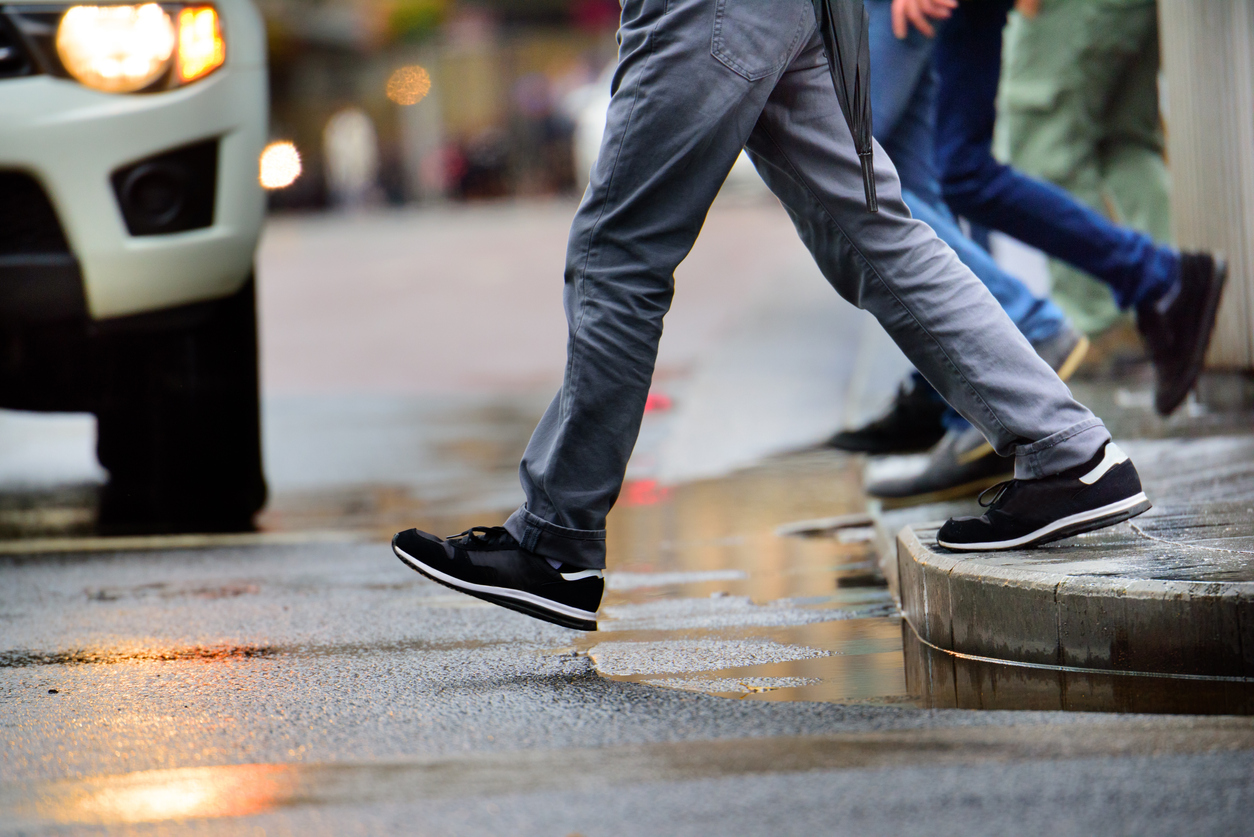What's to blame for a COVID-era increase in pedestrian deaths?


A free daily email with the biggest news stories of the day – and the best features from TheWeek.com
You are now subscribed
Your newsletter sign-up was successful
Just about two years into the COVID-19 pandemic, the U.S. is contending with record levels of pedestrian deaths thanks to a "nationwide flare-up in reckless driving," The New York Times reports. Authorities blame things like rising anxiety levels, pandemic drinking habits, and weakening social norms for the surge.
While the rise in deaths has hit Sun Belt states "particularly hard," the "pedestrian death toll spiked last year in many parts of the country," the Times writes.
And though traffic specialists expected deaths to decline when COVID hit, the opposite occured; even with a drop in driving, the pedestrian fatality rate surged approximately 21 percent in 2020, "the largest ever year-over-year increase," per the Times.
The Week
Escape your echo chamber. Get the facts behind the news, plus analysis from multiple perspectives.

Sign up for The Week's Free Newsletters
From our morning news briefing to a weekly Good News Newsletter, get the best of The Week delivered directly to your inbox.
From our morning news briefing to a weekly Good News Newsletter, get the best of The Week delivered directly to your inbox.
Why? Well, initially, empty roads may have led to faster driving, while police relaxed enforcement to cut back on in-person interactions. Drivers also seemed to get angrier, writes the Times, perhaps because the pandemic made them feel like other threats weren't nearly as large. COVID also "intensified" certain trends with which the U.S. was already dealing, including an aging population (where older pedestrians are more vulnerable) and an increase in car size and weight.
"Cars are getting bigger, faster and deadlier," said journalist and author Angie Schmitt.
Others say that since cars have grown safer for those who drive them, what with features like backup cameras, "some drivers are emboldened to dismiss the risks to pedestrians," notes the Times.
Not to mention that, after all of this, people are just plain fed up, cognitive scientist Art Markman added.
A free daily email with the biggest news stories of the day – and the best features from TheWeek.com
"When you get angry in the car, it generates energy — and how do you dissipate that energy? Well, one way is to put your foot down a little bit more on the accelerator."
Brigid Kennedy worked at The Week from 2021 to 2023 as a staff writer, junior editor and then story editor, with an interest in U.S. politics, the economy and the music industry.
-
 Local elections 2026: where are they and who is expected to win?
Local elections 2026: where are they and who is expected to win?The Explainer Labour is braced for heavy losses and U-turn on postponing some council elections hasn’t helped the party’s prospects
-
 6 of the world’s most accessible destinations
6 of the world’s most accessible destinationsThe Week Recommends Experience all of Berlin, Singapore and Sydney
-
 How the FCC’s ‘equal time’ rule works
How the FCC’s ‘equal time’ rule worksIn the Spotlight The law is at the heart of the Colbert-CBS conflict
-
 A Nipah virus outbreak in India has brought back Covid-era surveillance
A Nipah virus outbreak in India has brought back Covid-era surveillanceUnder the radar The disease can spread through animals and humans
-
 Trump HHS slashes advised child vaccinations
Trump HHS slashes advised child vaccinationsSpeed Read In a widely condemned move, the CDC will now recommend that children get vaccinated against 11 communicable diseases, not 17
-
 Covid-19 mRNA vaccines could help fight cancer
Covid-19 mRNA vaccines could help fight cancerUnder the radar They boost the immune system
-
 FDA OKs generic abortion pill, riling the right
FDA OKs generic abortion pill, riling the rightSpeed Read The drug in question is a generic version of mifepristone, used to carry out two-thirds of US abortions
-
 The new Stratus Covid strain – and why it’s on the rise
The new Stratus Covid strain – and why it’s on the riseThe Explainer ‘No evidence’ new variant is more dangerous or that vaccines won’t work against it, say UK health experts
-
 RFK Jr. vaccine panel advises restricting MMRV shot
RFK Jr. vaccine panel advises restricting MMRV shotSpeed Read The committee voted to restrict access to a childhood vaccine against chickenpox
-
 Texas declares end to measles outbreak
Texas declares end to measles outbreakSpeed Read The vaccine-preventable disease is still spreading in neighboring states, Mexico and Canada
-
 RFK Jr. shuts down mRNA vaccine funding at agency
RFK Jr. shuts down mRNA vaccine funding at agencySpeed Read The decision canceled or modified 22 projects, primarily for work on vaccines and therapeutics for respiratory viruses
